Hannouf, Marwa B., Alejandro Padilla‐Rivera, Getachew Assefa, and Ian Gates. "Methodological Framework to Find Links between Life Cycle Sustainability Assessment Categories and the UN Sustainable Development Goals Based on Literature". Journal of Industrial Ecology. May 24, 2022. https://onlinelibrary.wiley.com/...
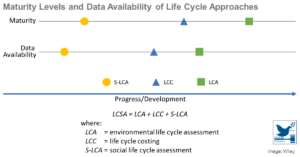 Life cycle sustainability assessment (LCSA) is suggested to be the best method to assess the environmental, economic, and social impacts of products along their life cycle in the context of the Sustainable Development Goals (SDGs) supporting them. It links LCSA categories and measures the sustainability performance of products and operating systems and their contribution to the SDGs. The LCSA framework depends on environmental life cycle assessment (LCA), life cycle costing (LCC), and social life cycle assessment (S-LCA), each having different levels of data availability and maturity. However, linking LCSA to the SDGs is work in progress and the linkages are limited.
Life cycle sustainability assessment (LCSA) is suggested to be the best method to assess the environmental, economic, and social impacts of products along their life cycle in the context of the Sustainable Development Goals (SDGs) supporting them. It links LCSA categories and measures the sustainability performance of products and operating systems and their contribution to the SDGs. The LCSA framework depends on environmental life cycle assessment (LCA), life cycle costing (LCC), and social life cycle assessment (S-LCA), each having different levels of data availability and maturity. However, linking LCSA to the SDGs is work in progress and the linkages are limited.
Posted on 05/08/22
Recent Abstracts
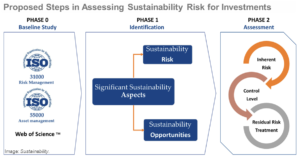
Climate Change and Sustainability Disputes between Foreign Investors and States
Countries are transitioning to low carbon, sustainable and climate-resilient economies. The action taken by states on climate change and sustainability will affect the profitability and viability of many existing investments and commercial arrangements. Significant changes to the investment environment in the name of ...
Posted on 05/01/22

Environmental Performance of Products & Businesses – Substantiating Claims
The European Commission (EC) consulted with the general public and key stakeholders to regulate green claims in marketing and combat greenwashing. The consultation assessed the reliability and scope of current labels/initiatives and reviewed the current greenwashing practices that mislead market actors and reduce sust ...
Posted on 04/01/22

A Look Back at Significant Decisions in Climate Litigation in 2021
2021 was a significant year for climate litigation. This post highlights some of the most significant decisions in climate litigation and their implication for the future. The verdicts show that courts increasingly recognize climate change as a human rights issue and that judges are prepared to order both states and ...
Posted on 04/01/22
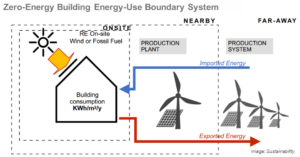
Brussels’ Big Building Grab
The EU plans to regulate the renovation of already existing, poorly insulated or ventilated buildings to become carbon neutral by 2050. The "nearly net-zero" energy efficiency standards for new builds are set to be strengthened. For the initiative, the Commission will make up to €150bn in regional development, cohesi ...
Posted on 03/01/22

Transforming Existing Hotels to Net Zero Carbon
The majority of hotel carbon emissions result from operational energy consumption. With 80% of hotels in 2050 already in existence, this white paper sets out a high-level framework and prioritizes interventions throughout the remaining life cycle of the existing building stock. The paper addresses the net-zero carbon ...
Posted on 31/12/21

A Comprehensive Review of Deterrents to the Practice of Sustainable Interior Architecture and Design
Sustainable Interior Architecture and Design (SIAD) impacts energy conservation as well as occupants’ satisfaction, comfort, and physical and psychological wellbeing. Although its adoption is necessary for achieving the sustainable development and operation of the built environment as well as the relevant sustainable ...
Posted on 30/12/21
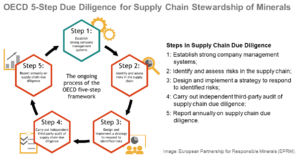
Due Diligence and Ongoing Stewardship When Engaging on Supply Chain Risk
Stewardship is the use of influence by institutional investors to maximize long-term value, including the value of common social, environmental and economic assets on which returns and stakeholder interests depend. Stewardship and ESG incorporation calls for the inclusion of ESG factors in investment and capital alloc ...
Posted on 29/12/21
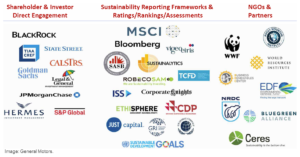
‘Sustainable’ Companies Face Increased Pressure to Justify the Sustainability Label Amid Investor Challenges and Demands for Greater Risk Assessment and Disclosure
Companies globally are increasingly required to provide disclosure that is reliable, consistent, and comparable. They are facing increased pressure across the world to justify their sustainability label – "green labeling". The US Securities and Exchange Commission (SEC) has also voiced the importance of clear, consis ...
Posted on 28/12/21
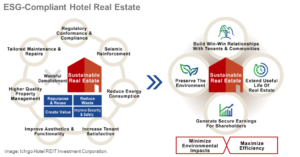
ESG in Hotel Real Estate: Understanding ESG & the Hotel Asset Lifecycle
This article explores ESG – environmental, social and (corporate) governance – in the hotel sector by examining the ESG factors in hospitality and reviewing the role of ESG in a hotel’s life cycle. While environmental needs are the most pressing and environmental efforts are more measurable, social and governance fact ...
Posted on 27/12/21
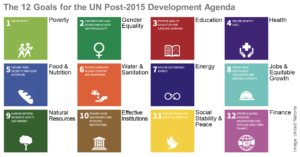
A New Global Partnership: Eradicate Poverty and Transform Economies through Sustainable Development
Published in 2013, the report contributed to the development of a post-2015 agenda and the Paris Agreement adopted in 2015 by the United Nations. It set out a universal agenda to eradicate extreme poverty globally by 2030 and deliver on the promise of sustainable development. The report addressed issues that are crit ...
Posted on 24/12/21

Aufgefallen in… Rimini
On the Italian Adriatic coast in the province of Rimini, more than 350 hotels are up for sale. According to estimates, €320 million would be enough to buy a good third of them. In Rimini alone, 159 buildings are now on the market, several of them with four and five stars. It is not only the Corona pandemic that has ...
Posted on 23/12/21
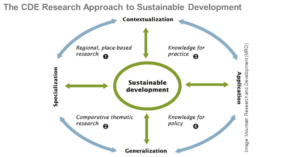
Special Issue : Sustainable Development: Challenges and Opportunities
The overall goal of sustainable development is to meet our needs today without compromising the ability of future generations to meet theirs. The implementation of the sustainable development concept is our greatest challenge. This special issue invites researchers to the scientific debate on its challenges and oppor ...
Posted on 22/12/21
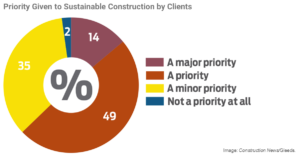
Factors Influencing Clients’ Commitment to Sustainable Construction Practices
Successful sustainable development of projects largely depends on the level of clients’ commitment to sustainable construction practices. This survey found that the most influential factors were client knowledge and awareness; cost implication and mechanism of financial involvement; economic value and return on invest ...
Posted on 20/12/21
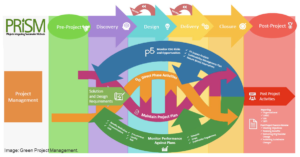
Building Sustainably: A Pilot Study on the Project Manager’s Contribution in Delivering Sustainable Construction Projects – A Maltese and International Perspective
Tasked with the overall management of a building’s development phases, the project manager is becoming increasingly crucial for achieving project sustainability goals. This survey reveals that project managers were well aware of sustainability issues and their role in bringing a sustainability agenda into construction ...
Posted on 19/12/21
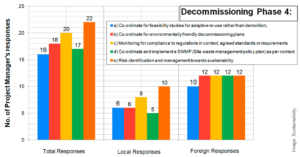
Proposal for a Directive of the European Parliament and of the Council on the Energy Performance of Buildings
The proposed revision of the EPBD is part of the 2021 EU Commission Work Programme “Fit for 55” package. It is key legislation to deliver on the 2030 and 2050 decarbonization objectives and adopt the Renovation Wave Strategy with concrete regulatory, financing and enabling measures. The revision introduces minimum en ...
Posted on 18/12/21

